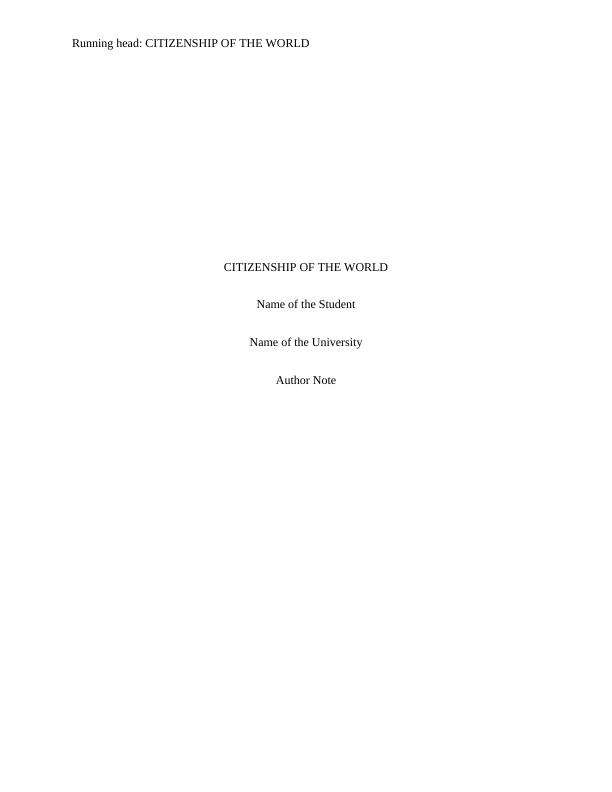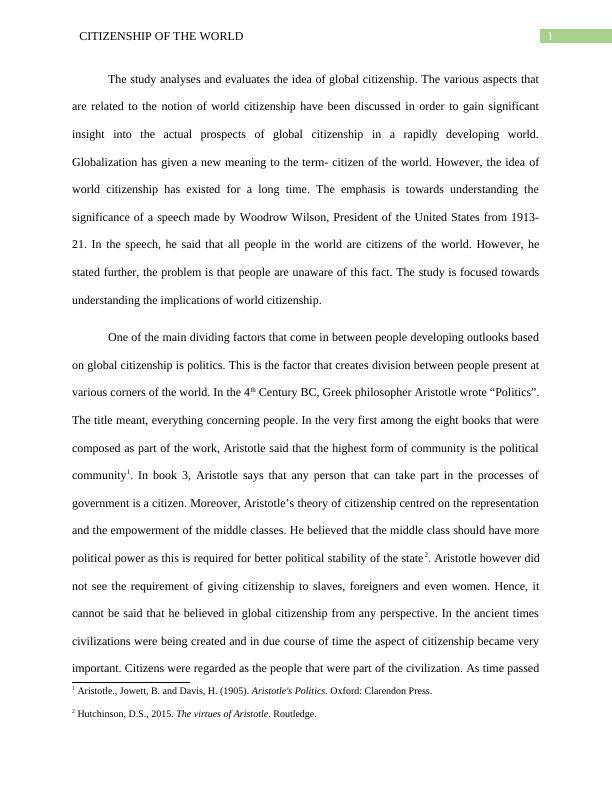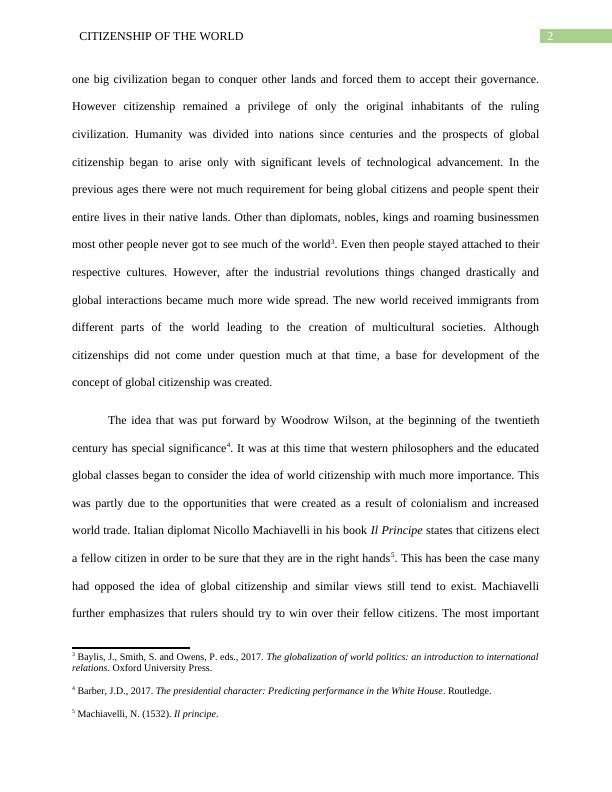Citizenship of the World
6 Pages1531 Words445 Views
Added on 2023-05-31
About This Document
The study analyzes and evaluates the idea of global citizenship, discussing various aspects related to the notion of world citizenship to gain insight into its prospects in a rapidly developing world. The study focuses on understanding the implications of world citizenship and the dividing factors that come in between people developing outlooks based on global citizenship. The value of a citizen is based on the concepts of justice, equality, governance, and positive relationships of the rulers with the subjects. The responsibilities of a global citizen towards politics have been found to be more or less the same as the responsibilities of the citizen of a state.
Citizenship of the World
Added on 2023-05-31
ShareRelated Documents
End of preview
Want to access all the pages? Upload your documents or become a member.
T H Marshall’s Social Citizenship Theory and Its Relevance
|10
|2732
|281
Marshalls Theory of Citizenship
|11
|3066
|205
Global Marketing Author's Note: The Rise of Globalization
|17
|5516
|296
Non-state actors
|8
|2051
|1
United States History
|5
|1219
|192
French Revolution and Liberalism Essay 2022
|4
|1179
|56



